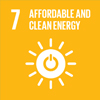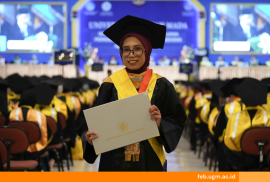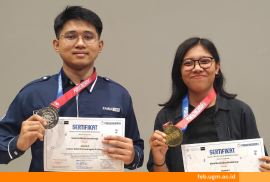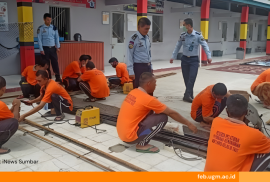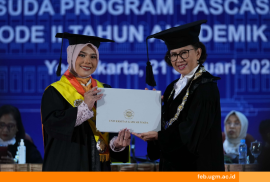
The Faculty of Economics and Business, Universitas Gadjah Mada (FEB UGM), through its Sustainability and Strategic Initiatives Unit (SSIU), held a Focus Group Discussion (FGD) in an effort to develop the Sustainable Business School Framework (SBSF) and compile the FEB UGM Sustainability Report on Wednesday, 19 October 2025.
Luluk Lusiantoro, S.E., M.Sc., Ph.D., (CSP), Head of SSIU FEB UGM, explained that the FGD aimed to align and collect input from each unit on implementing sustainability principles across the three pillars of higher education and faculty operations. The discussion results will directly contribute to strengthening the SBSF framework and the development of the FEB UGM sustainability report.
On this occasion, Luluk presented the SBSF framework and the draft FEB UGM Sustainability Report. SBSF is an initiative that evaluates the sustainability performance of business schools across three primary dimensions: education, research, and community service. Through this framework, FEB UGM strives to promote sustainability practices in higher education, particularly in business schools.
Luluk also explained the five leading indicators that will be the focus of the FEB UGM Sustainability Report. First, Student Wellness, which encompasses inclusivity, safety, and support services, ensures that all students can develop optimally, particularly in terms of their well-being outside the academic environment. Second, the Student Lifecycle, which describes the journey of students from admission through campus life orientation, educational and research activities, to career preparation and graduation. Third, the Academic Environment covers aspects that support the learning process and lecture activities, including comprehensive academic services to enhance the learning experience. Fourth, Research for Sustainability focuses on research activities that raise priority sustainability themes and are in line with the FEB UGM strategic research roadmap. Fifth, Community Services for Sustainability indicators connect academic knowledge with community needs to create a real impact while providing learning experiences for students.
Workshop participants actively learned about various sustainability indicators relevant to faculty activities, such as energy efficiency, waste management, transportation, and student welfare. The discussion also highlighted the sustainability practices already implemented at FEB UGM, particularly in campus waste management. The faculty has taken concrete steps, including requiring canteen managers and tenants to handle their own waste and reducing event-related waste by promoting the use of reusable equipment, such as stainless-steel lunch boxes. During the FGDs, representatives from various units and study programs contributed valuable input to enhance the preparation of the Sustainability Report and ensure that sustainability principles are fully integrated into operational practices.
The results of this activity will be an essential part of refining the SBSF framework and the 2025 FEB UGM sustainability report. With the development of the SBSF and Sustainability Report, FEB UGM reaffirms its commitment to becoming a sustainable business school that not only excels academically but also makes tangible contributions to sustainable development and community welfare.
Reportage by: Kurnia Ekaptiningrum


